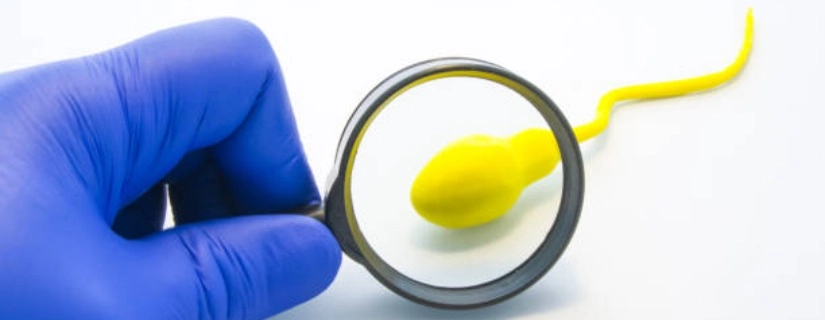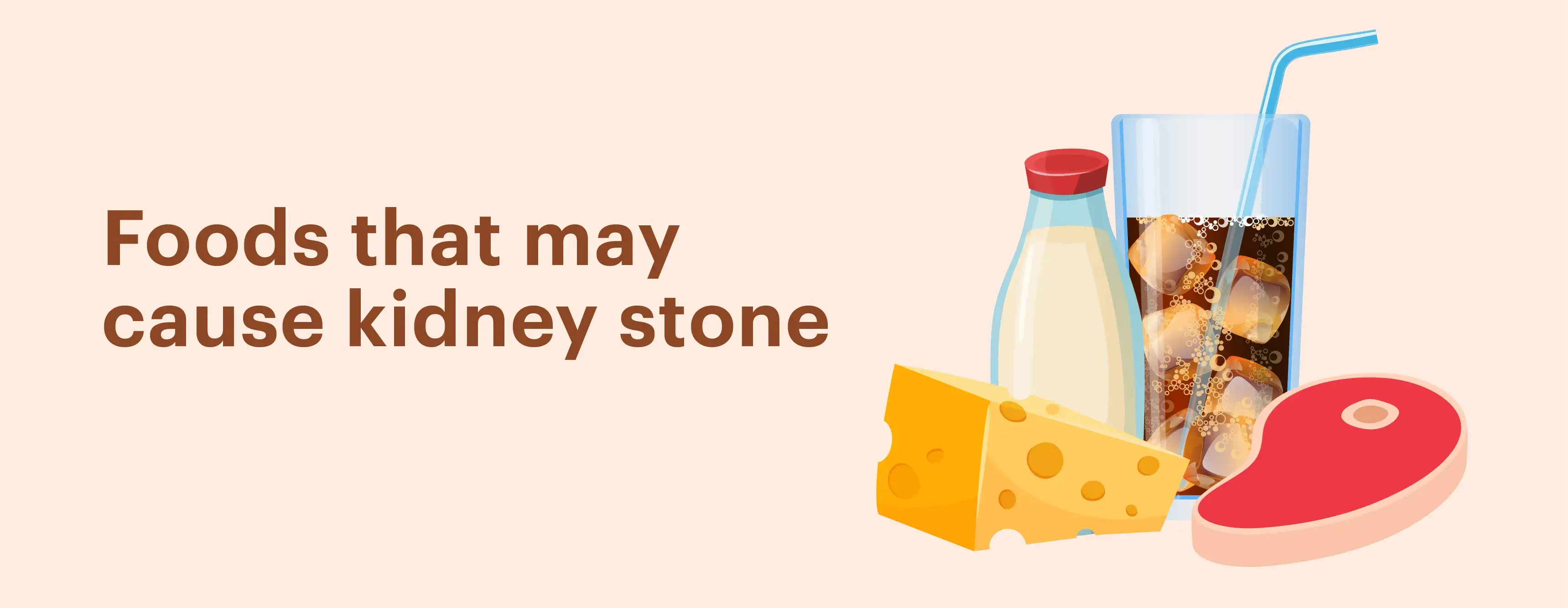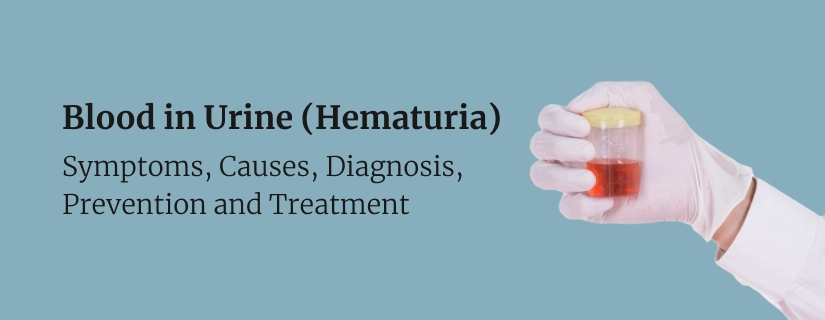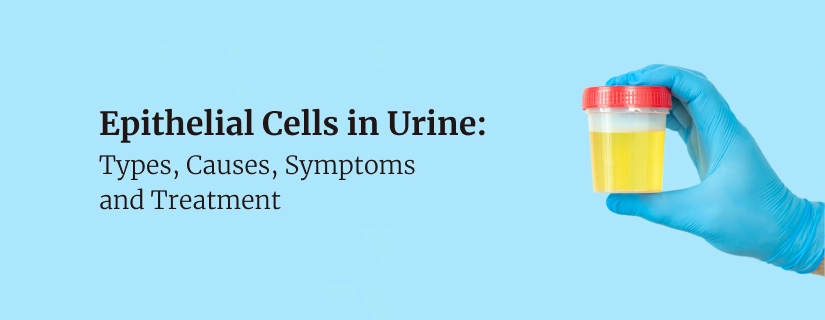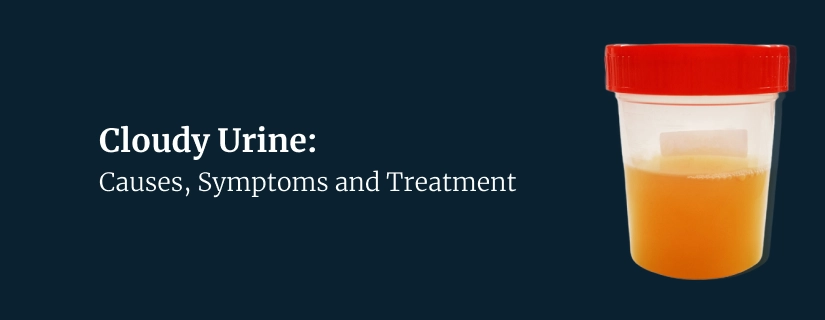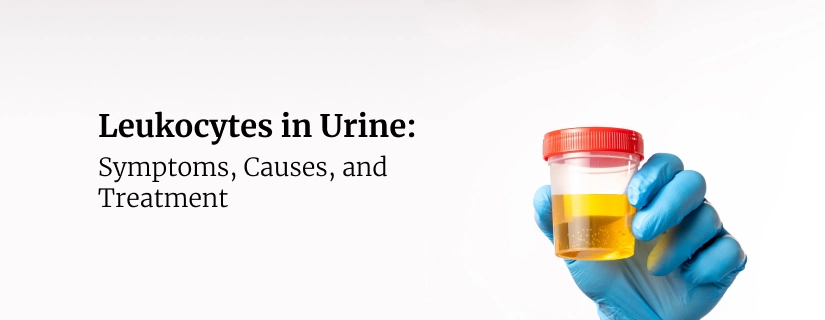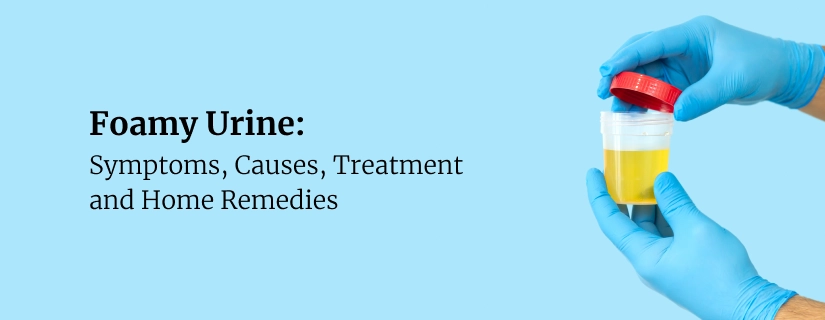-
Doctors
-
Specialities & Treatments
Centre of Excellence
Specialties
Treatments and Procedures
Hospitals & Directions HyderabadCARE Hospitals, Banjara Hills CARE Outpatient Centre, Banjara Hills CARE Hospitals, HITEC City CARE Hospitals, Nampally Gurunanak CARE Hospitals, Musheerabad CARE Hospitals Outpatient Centre, HITEC City CARE Hospitals, Malakpet
HyderabadCARE Hospitals, Banjara Hills CARE Outpatient Centre, Banjara Hills CARE Hospitals, HITEC City CARE Hospitals, Nampally Gurunanak CARE Hospitals, Musheerabad CARE Hospitals Outpatient Centre, HITEC City CARE Hospitals, Malakpet Raipur
Raipur
 Bhubaneswar
Bhubaneswar Visakhapatnam
Visakhapatnam
 Nagpur
Nagpur
 Indore
Indore
 Chh. Sambhajinagar
Chh. SambhajinagarClinics & Medical Centers
Book an AppointmentContact Us
Online Lab Reports
Book an Appointment
Consult Super-Specialist Doctors at CARE Hospitals
Urinary Tract Infection (UTI ) in Women: All You Need to Know
Updated on 30 March 2020

Table of Content
- What is a Urinary Tract Infection (UTI)?
- How Common are Urinary Tract Infections?
- How do you get a Urinary Tract Infection?
- Who is at the Greatest Risk of Getting a Urinary Tract Infection?
- Symptoms of Urine Infection in Women
- Causes of UTI
- Types of UTI
- Diagnosis
- Treatment
- Risk Factors
- Prevention
- FAQs
UTI stands for urinary tract infection and refers to an infection in any part of the urinary system including the kidneys, uterus, bladder, and urethra. The causes of UTI in women are mainly because of microbes like bacteria that overcome the body’s defenses in the urinary tract. Women are known to be at a higher risk of developing a UTI compared to men. The infection restricted to the bladder tends to be more painful and troublesome. The infection can get pretty severe when it spreads to the kidneys. A urinary tract infection is normally treated with antibiotics and the course lasts from a week to 14 days.
What is a Urinary Tract Infection (UTI)?
How Common are Urinary Tract Infections?
UTIs are one of the most common bacterial infections. They affect millions of people each year, with women being more susceptible than men.
How do you get a Urinary Tract Infection?
UTIs typically occur when bacteria, often from the digestive tract, enter the urinary system through the urethra and multiply in the bladder. Sexual activity, poor hygiene, certain medical conditions, or using a catheter can increase the risk of UTIs.
Who is at the Greatest Risk of Getting a Urinary Tract Infection?
Women are at a higher risk due to their anatomy (shorter urethra), but UTIs can occur in anyone. Other risk factors include having a urinary catheter, menopause, certain birth control methods, suppressed immune system, diabetes, urinary tract abnormalities, and a history of UTIs.
Symptoms of Urine Infection in Women
Urinary tract infections do not always have symptoms or signs that indicate the development of the infection. However, there are certain conditions that need to be kept in mind, on the occurrence of which you should visit the best gynaecologist in India and get yourself checked for UTI. The symptoms of UTI in women include:
- Burning sensation while urinating
- Frequent and persistent urge to urinate
- Frequently passing small amounts of urine
- Strong smelling urine
- Pelvic pain that could occur in bouts or continuously
- Fluctuation in body temperature
- Periods of shivering and sweating alternatively (signs that the infection has spread to your kidneys)
- Signs of blood in the urine that makes it look red, orange or pink
As soon as you witness these symptoms, visit your doctor for a check-up. CARE Hospital is counted among the best gynaecology hospitals in Hyderabad, with the best doctors and the latest technology to help patients fight the infection at the earliest.
Causes of UTI
Urinary tract infections occur when bacteria enter your urinary tract through the urethra and begin to multiply within your bladder. The urinary system is designed to keep these microscopic invaders away, however they tend to make their way in certain conditions. In such situations, the bacteria grows in the bladder and causes an infection in the urinary tract.
Urinary tract infections (UTIs) are typically caused by bacteria entering the urinary tract and multiplying. Here are some causes and risk factors include:
- Sexual Activity: Sexual intercourse can introduce bacteria into the urethra, increasing the risk of infection.
- Female Anatomy: Women are more prone to UTIs due to their shorter urethras, which make it easier for bacteria to reach the bladder.
- Urinary Tract Abnormalities: Structural issues in the urinary tract, such as kidney stones or an enlarged prostate, can create conditions favorable for bacterial growth.
- Suppressed Immune System: Conditions or medications that weaken the immune system can make individuals more susceptible to infections, including UTIs.
- Catheter Use: Inserting a catheter into the bladder can introduce bacteria, leading to infection.
- Obstruction: Any obstruction in the urinary tract, such as a tumor or urinary stones, can hinder the normal flow of urine and increase the risk of infection.
- Diabetes: Individuals with diabetes may have a weakened immune system, making them more susceptible to infections, including UTIs.
- Postmenopausal Changes: Reduced estrogen levels in postmenopausal women can alter the urinary tract environment, making it more prone to infections.
- Poor Hygiene Practices: Wiping from back to front after using the toilet can introduce bacteria into the urethra.
- Pregnancy: Changes in the urinary tract during pregnancy, along with hormonal fluctuations, can increase the risk of UTIs.
Types of UTI
The infection can take place in different parts of the urinary tract. Each of these has a separate name based on the area of the infection.
- Cystitis: This infection occurs in the bladder. You might feel the constant urge to pee a lot and in some cases it might hurt when you pee. It might also lead to pain in the lower belly and/or back. The urine may have traces of blood in it as well. Sexual intercourse may lead to cystitis but you don’t have to be sexually active to develop this. All women have the risk of developing this infection given their anatomy.
- Pyelonephritis: This infection develops in the kidneys. It causes fever, chills, nausea, vomiting and severe pain in the upper back or side. Body temperature fluctuates with bouts of fever and chills occurring in phases.
- Urethritis: This type of UTI develops in your urethra. It causes discharge and a burning sensation when you pee.
Diagnosis
Diagnosing a urinary tract infection (UTI) involves a comprehensive approach to accurately identify the infection and tailor appropriate treatment. The process includes:
- Medical History and Physical Examination:
- Thorough evaluation of symptoms and patient history.
- Physical examination to assess signs of infection.
- Urinalysis:
- Collection of urine sample for microscopic analysis.
- Dipstick test to detect nitrites and leukocyte esterase indicating bacterial presence.
- Urine Culture:
- Identification of specific bacteria causing the infection.
- Antibiotic sensitivity testing for targeted treatment.
- This multifaceted diagnostic approach ensures precise identification of the UTI, facilitating effective and individualized treatment strategies.
Treatment
Treatment typically involves antibiotics prescribed by a healthcare professional. The type of antibiotic and duration of treatment depend on the severity and location of the infection. Drinking plenty of water and urinating frequently can help flush out bacteria.
The treatment of a urinary tract infection (UTI) in women typically involves antibiotics to target the bacterial infection. Here's an overview of the treatment process:
- Antibiotics:
- Prescription: A healthcare provider will determine the appropriate antibiotic based on factors such as the type of bacteria causing the infection and its susceptibility to specific antibiotics.
- Course of Treatment: The duration of antibiotic treatment typically ranges from a few days to a couple of weeks, depending on the severity of the infection.
- Pain Relief:
- Analgesics: Over-the-counter pain relievers, such as ibuprofen or acetaminophen, may be recommended to alleviate pain and discomfort associated with a UTI.
- Prescription Pain Medications: In cases of severe pain, a healthcare provider may prescribe stronger pain medications.
- Fluid Intake:
- Water: Drinking plenty of water is crucial for flushing out bacteria from the urinary tract. Adequate hydration helps dilute urine and promote frequent urination, aiding in the elimination of bacteria.
- Avoiding Irritants: Limiting the consumption of irritants such as caffeine and alcohol can be beneficial.
- Urination Habits:
- Frequent Urination: Encouraging frequent urination helps expel bacteria from the bladder. Individuals should not delay or resist the urge to urinate.
- Emptying the Bladder Completely: Ensuring that the bladder is fully emptied during each urination can help prevent the lingering of bacteria.
- Follow-up Care:
- Completing Antibiotic Course: It is crucial to complete the entire course of antibiotics prescribed by the healthcare provider, even if symptoms improve before completion.
- Follow-up Appointments: In some cases, a follow-up appointment may be recommended to ensure that the infection has cleared.
- Rest and Self-Care:
- Rest: Adequate rest allows the body to focus on healing and recovering from the infection.
- Warm Compresses: Applying warm compresses to the lower abdomen can provide relief from discomfort.
- Preventive Measures:
- Good Hygiene Practices: Maintaining proper hygiene, including wiping from front to back after using the toilet, can help prevent the introduction of bacteria into the urethra.
- Urinating After Sexual Activity: Emptying the bladder after sexual activity can help flush out any bacteria that may have entered the urethra.
Risk Factors
Risk factors for UTIs include female anatomy, sexual activity, certain contraceptives, menopause, urinary tract abnormalities, suppressed immune system, and using a urinary catheter.
Prevention
It is important to take the right precautions against urinary tract infections. Follow these steps to avoid chances of developing this infection.
- Drink plenty of liquids: Drinking liquids, especially water helps dilute your urine and frequent passing of urine. This allows the bacteria to be flushed from your system before the infection can develop.
- Wipe well: Wipe from front to back post urinating and bowel movement helps prevention of the spread of bacteria from the anal region to the vagina and urethra.
- Empty your bladder post intercourse: This helps flush the bacteria from your body. It is also advised to drink water right after.
- Change the birth control methods: Unlubricated condoms can attribute to the growth of infections.
You can visit CARE Hospitals, which is the best gynaecologist hospital in India, for regular appointments with experienced doctors. The team here have years of experience and expertise in the medical field which also makes this hospital one of the best pregnancy and UTI treatment hospital in Hyderabad.
FAQs:
1. Can a UTI go away on its own?
In some cases, mild UTIs might resolve on their own, but it's generally advisable to seek medical treatment to prevent complications and recurrence.
2. What is the fastest way to cure a urine infection?
Antibiotics prescribed by a healthcare professional are the most effective way to treat a UTI. Drinking plenty of water can also help flush out bacteria.
3. How to relieve UTI pain?
Pain relief options may include over-the-counter medications like ibuprofen or acetaminophen. Applying a heating pad to the abdomen can also provide relief.
4. Which fruits are good for urine infection?
Fruits such as cranberries, blueberries, and citrus fruits like oranges and lemons contain compounds that may help prevent UTIs by interfering with bacteria adhering to the urinary tract.
Always consult a healthcare professional for proper diagnosis and treatment if you suspect a UTI or have persistent symptoms. They can provide appropriate guidance and medication tailored to your condition.

ENQUIRY FORM
SELECT CATEGORIES
-
Neurosciences (16)
-
Neurology (37)
-
Neurosurgery (14)
-
Orthopaedics (48)
-
Oncology (33)
-
Obstetrics and gynecology (51)
-
Pulmonology (23)
-
Urology (20)
-
Nephrology (13)
-
Psychiatry (7)
-
Dietetics and Nutrition (111)
-
General Medicine (63)
-
Cardiac Sciences (30)
-
Vascular & Endovascular Surgery and Interventional Radiology (10)
-
Gastroenterology (46)
-
Endocrinology (23)
-
Plastic Surgery (10)
-
Critical Care Medicine (5)
-
COVID-19 (16)
-
Dermatology (16)
-
Emergency Care (1)
-
Ophthalmology (4)
-
Pediatrics (14)
-
Laparoscopic and Bariatric Surgery (8)
-
ENT (15)
-
Kidney Transplant (1)
-
Liver Transplantation and Hepatobiliary Surgery (5)
-
General Surgery (3)
-
Internal Medicine (5)
-
Medicine Information
Kidney Friendly Diet to Ensure Healthy Kidneys
Causes of Burning Sensation During Urination
YOU MAY ALSO LIKE
RECENT BLOGS
-

Direct Anterior Approach in Total Hip Replacement: Advantages and Challenges
10 April 2025
Read More
-

Zinc Deficiency: Signs and Symptoms, Causes, Treatment
9 April 2025
Read More
-

Chest Pain When Coughing: Causes, Treatment and Home Remedies
9 April 2025
Read More
-

12 Health Benefits of Eating Mushrooms
8 April 2025
Read More
-

7 Health Benefits of Blood Donation You Should Know About
8 April 2025
Read More
-

Implantation Bleeding Vs Periods: Know the Difference
28 February 2025
Read More
-

Bloating During Ovulation: Symptoms, Causes and Remedies
28 February 2025
Read More
-

Itching During Dengue: Causes, Treatment and Home Remedies
18 February 2025
Read More
Have a Question?
If you cannot find answers to your queries, please fill out the enquiry form or call the number below. We will contact you shortly.



